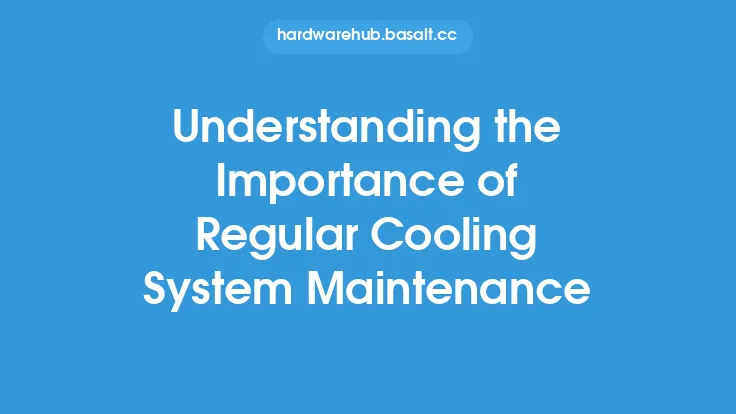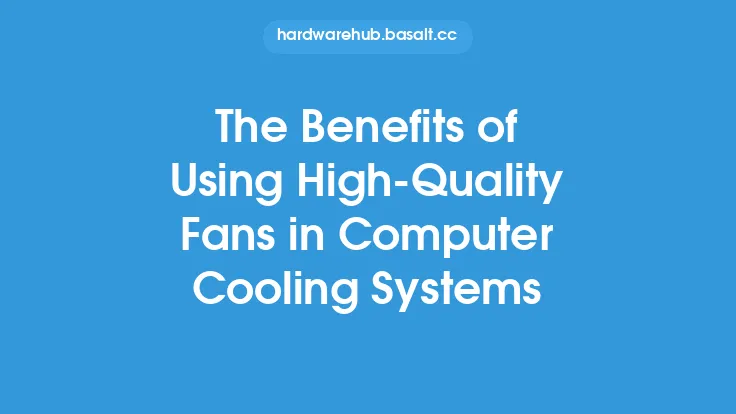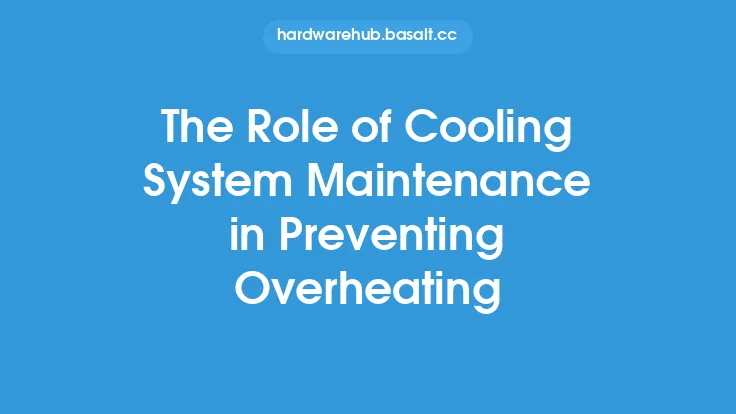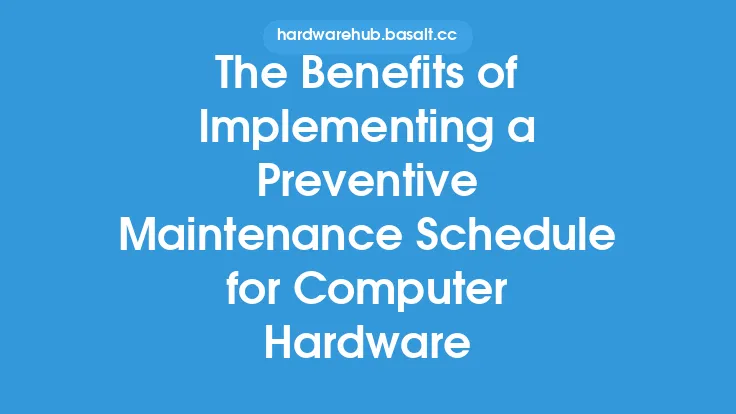Regular maintenance is essential for ensuring the optimal performance and longevity of cooling systems. One of the most critical aspects of cooling system maintenance is scheduling regular check-ups. These check-ups allow technicians to inspect the system, identify potential issues, and perform necessary repairs or replacements. By doing so, individuals can prevent unexpected breakdowns, reduce energy consumption, and prolong the lifespan of their cooling system.
Introduction to Cooling System Check-Ups
Cooling system check-ups typically involve a thorough inspection of the system's components, including the compressor, condenser coils, evaporator coils, and fan motors. During the check-up, technicians will also check the refrigerant levels, inspect the ductwork, and verify that the system is properly sized for the space it is cooling. This comprehensive inspection helps identify potential issues before they become major problems, allowing for proactive maintenance and minimizing the risk of unexpected breakdowns.
Benefits of Regular Cooling System Check-Ups
Regular cooling system check-ups offer numerous benefits, including improved system performance, increased energy efficiency, and extended lifespan. By identifying and addressing potential issues early on, individuals can prevent unexpected breakdowns, which can be costly and inconvenient. Additionally, regular check-ups can help reduce energy consumption by ensuring that the system is operating at optimal levels, which can lead to significant cost savings over time. Furthermore, regular maintenance can help prolong the lifespan of the cooling system, reducing the need for premature replacements and minimizing waste.
Technical Aspects of Cooling System Check-Ups
From a technical standpoint, cooling system check-ups involve a range of tasks, including inspecting the system's electrical components, verifying the proper functioning of the thermostat, and checking the system's refrigerant levels. Technicians will also inspect the condenser coils and evaporator coils for signs of damage or corrosion, which can reduce the system's efficiency and performance. Additionally, they will check the fan motors and blades for proper function and balance, ensuring that the system is operating at optimal levels. By performing these tasks, technicians can identify potential issues and perform necessary repairs or replacements, ensuring that the cooling system operates efficiently and effectively.
Scheduling Cooling System Check-Ups
To ensure that cooling systems receive the necessary maintenance, it is essential to schedule regular check-ups. The frequency of these check-ups will depend on various factors, including the system's age, usage, and environmental conditions. As a general rule, cooling systems should be inspected at least once a year, preferably before the start of the cooling season. However, systems that are used extensively or are exposed to harsh environmental conditions may require more frequent check-ups. By scheduling regular check-ups, individuals can ensure that their cooling system operates efficiently, effectively, and reliably, providing optimal performance and longevity.
Best Practices for Cooling System Check-Ups
To get the most out of cooling system check-ups, it is essential to follow best practices. This includes hiring a qualified technician who has experience with cooling system maintenance, scheduling check-ups at the recommended frequency, and keeping a record of all maintenance activities. Additionally, individuals should ensure that their cooling system is properly sized for the space it is cooling, as an oversized or undersized system can lead to reduced performance and efficiency. By following these best practices, individuals can ensure that their cooling system operates at optimal levels, providing reliable and efficient cooling throughout its lifespan.
Conclusion
In conclusion, scheduling regular cooling system check-ups is essential for ensuring the optimal performance and longevity of cooling systems. By identifying and addressing potential issues early on, individuals can prevent unexpected breakdowns, reduce energy consumption, and prolong the lifespan of their cooling system. Whether you are a homeowner, business owner, or facility manager, regular cooling system check-ups are crucial for maintaining a reliable and efficient cooling system. By following best practices and scheduling regular check-ups, you can ensure that your cooling system operates at optimal levels, providing optimal performance and longevity.





